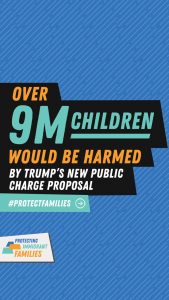The Fabric of SLO County: Understanding the Diversity and Contributions of our Immigrant Community
This study consolidates data from various sources to support policymakers, nonprofits, and other local organizations in understanding the composition, challenges, and needs of the immigrant community in San Luis Obispo County. Key issues covered include housing, healthcare, legal support, education, economic stability, and family services.
The Community Foundation San Luis Obispo County, SLO County Board of Supervisors, Diversity Coalition San Luis Obispo County, First 5 San Luis Obispo County and MUST! Charities have provided funding for this report.
The full report and summary report are here. The Spanish versions for the report and summary report are here.
The SLO Tribune did an excellent summary of the report and KCBX did an extensive interview with Joel Diringer about the report’s findings.
UC Merced Farmworker Health Study
See the results of the recently completed Farmworker Health Study by UC Merced. The multi-lingual survey of over 1100 farmworkers studied health access and utilization, women’s health, workplace condition, COVID experiences and demographics of California’s farmworker population. Diringer and Associates worked with UC Merced to receive legislative funding, design the survey and analyze its results. Funded by the California Department of Public Health, the data dashboard contains the preliminary findings. Written reports and dissemination are forthcoming.
A followup study, funded by the Robert Wood Johnson Foundation is examining the policy options for increasing farmworker health coverage through Medi-Cal (Medicaid) and other coverage. The project is being jointly with Diringer and Associates, UC Merced, California Rural Legal Assistance Foundation and Insure the Uninsured Project, along with community farmworker advocates and stakeholders.
The issue brief on expanding coverage for California farmworkers and Making Medi-Cal Work for Farmworkers are here.
San Luis Obispo County Migrant Indigenous Community Survey (SLOMICS). Diringer and Associates assembled a team of community, indigenous and expert researchers to conduct an enumeration and community census for of the indigenous migrant population in the San Luis Obispo County. Funded by the SLO County Department of Public Health, the study produced information that allows San Luis Obispo County public officials, service providers, policy and program designers and migrant advocates to better fulfill their missions to address migrant and resident needs. See a project summary here. All reports and material can be found on the tri-lingual webpage for the study.
California’s Vaccination Plan Needs to Prioritize Farmworkers, Their Families and Agricultural Communities
 See the policy brief prepared for COVID-19 Farmworker and Rural Immigrant Community Advocacy Coalition, on why farmworkers and their communities should be Read the article in the Desert Sun on our policy brief.
See the policy brief prepared for COVID-19 Farmworker and Rural Immigrant Community Advocacy Coalition, on why farmworkers and their communities should be Read the article in the Desert Sun on our policy brief.
We have to get serious about protecting California farmworkers during COVID-19
See a recent op/ed in Cal Matters on how stricter enforcement of COVID-19 protections will save lives of vulnerable farmworkers. Also, see articles in Salinas Californian, San Luis Obispo Tribune, and Cal Matters.
COVID-19 Farmworker Study
The COVID-19 Farmworker Study (COFS) will provide critical missing information on farmworkers’ abilities to protect themselves and their families during the COVID-19 pandemic. The study brings together a collective of community-based organizations, researchers and advocates to reveal information that can only be gathered directly from farmworkers who have been working during the COVID-19 pandemic.
California farmworker families face unique challenges with the coronavirus and require targeted assistance to keep families and communities safe.
See a short summary of why farmworkers are disproportionately affected by COVID-19 and and how we need to help ensure the safety of farmworker communities and the products that they produce.
- Farmworkers are largely uninsured and lack access to basic health services.
- Farmworkers are deemed to be “essential critical infrastructure workers,” yet are at a particular risk of COVID-19.
- As a predominantly immigrant and low income population, farmworkers may shun even basic preventive and public health care services.
What we need to do:
Access to health services
- Ensure free testing and coverage for all COVID-19 related care regardless of insurance and immigration status, including cases with a provisional COVID-19 diagnosis.
- Suspend all co-pays and sliding fee payments at community clinics for COVID-19 related services.
- Enhance food and nutrition services to meet basic needs in these times of reduced work and income.
- Expand of Medi-Cal eligibility to all ages regardless of immigration status beyond the current coverage through age 25 and the Governor’s proposal to cover the elderly.
Outreach, advice, and support to farmworker families
- Support community based and promotores programs to provide outreach, education and navigation services, including transportation to health services.
- Enhance written material in Spanish and indigenous languages as well as radio, television, and social media messaging on COVID-19.
- Support community health center increase in service capacity– to expand phone advice into evening and early morning hours and establish triage facilities for COVID-19.
- Form alliances of community based organizations with local and State public health departments on COVID-19 outreach and education.
Labor and income supports
- Provide guaranteed sick leave for farmworker and dependents, unemployment coverage, and income for displaced and cash-paid farmworkers.
- Develop alternative mechanisms for income support for those affected by COVID-19 groups since some farmworkers are employed in the underground economy where mandated sick leave provisions cannot be rapidly enforced.
Federal proposed public charge regulations will harm millions

- Capitol briefing summary 7-10-14
- Capitol briefing material 7-10-14
- Stakeholder advisory group meeting notes 7-10-14
- Stakeholder advisory group meeting notes 3-10-14
- Stakeholder Advisory Group meeting agenda 3-10-14
- Coverage for California Farm Workers – One pager
- New Models of Health Care Coverage for California Farm Workers – project description
- Stakeholder Advisory Group Meeting Notes 10-28-13
- Further data analysis from Ed Kissam; Werner-Kohnstamm Family Fund 3-10-14
- Coverage for California Farm Workers – One pager 2-11-14
- SB 1005 Fact Sheet (Health4All)
- ICE Guidance on Affordable Care Act
- Werner‐Kohnstamm Family Fund data analysis of farmworker coverage 10-28-13
- Congressional sign on letter re: capped plans
- KVPR (San Joaquin Valley Public Radio) on farmworker health care options under the Affordable Care Act. Listen to the story: Growers Find Innovative Ways To Provide Health Care To Employees.9-3-2013
- Farmworkers and National Health Reform – Where Are We Now? (National Migrant and Seasonal Head Start ACA Webinar) –
April 2013 - Health Care for Farmworkers: Consensus Report of Local Agriculture and Labor Representatives — August 2009. Full report and PowerPoint presentation
